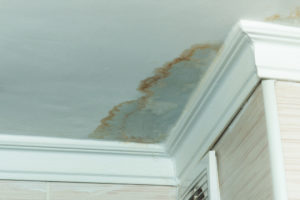
It can be frustrating when you receive a water claim damage denial. As a homeowner, you believe you are doing the right thing, protecting your home by purchasing a homeowners insurance policy.
You feel like this is a contract, you pay a monthly amount, and the company will protect you if anything goes wrong.
You might feel disappointed that you were under the impression that water damage or damage from storms, leaks, burst pipes, or sewer backups are covered. You might want the services of a Florida flood damage attorney that can handle disaster recovery claims.
Ambiguous Language Can Confuse Policyholders
One problem homeowners face purchasing a policy is that many policies have purposely included ambiguous language. People inherently believe that if it says your home is covered if a terrible event occurs, the nature of the event should not be the issue in exchange for a premium. In general, people believe in straightforward honesty.
It is a common tactic for insurance companies to take. After the initial shock wears off, policyholders can discover that they feel duped by language that seems tricky or unclear. Good advice is to take time one evening and thoroughly review your policy. Highlight any areas that are questionable and get clarification.
It can seem a bit unfair and like trickery when you are the homeowner left with a destroyed home and no way to collect. If you live in Florida and your policy uses ambiguous language, the court could side with the policyholder. The Florida Supreme Court agrees that this is not good business ethics and has sided with the policyholders in this regard.

Flood Damage Is Separate Coverage
Flood-related water damage is not covered under homeowners’ policies. Some homeowners are unaware that flood damage is not part of their policy. If you reside in a district with a possibility of flooding, you must purchase a policy from the National Flood Insurance Program (NFIP). Check with the flood program by entering your address and determining whether your home is in a flood zone.
Knowledge is power. Now that you know the differences in water damage coverages in homeowners’ policies, check your policy to ensure that you are adequately covered for future events. When you are clear about what your policy does and does not cover, you can sleep well at night knowing that your home will be covered regardless of what damage nature or an accident creates.
How Our Law Firm Can Assist With Your Water Damage Claim
Right now, you are probably feeling very overwhelmed and angry. You know that water damage is the worst thing that can happen to your home. If it is not remedied immediately, it can lead to mold, rot, and even more destruction.
You don’t have to accept your denial letter. You can fight back against your insurance company with the help of a disaster claims recovery attorney. Outside of floods, there are many reasons why water can cause damage to your home. Insurance companies know they must cover these other instances but often deny it anyway.
Common Ways Non-Flood-Related Water Damage Occurs
You might have property damage from any of the following reasons:
- Broken or leaky pipes
- Roof leaks
- Foundation cracks
- Faulty appliances
- Broken windows
- Storm damage
- Sewer backup
Many insurance companies automatically deny water damage claims. They don’t have to cover it if you don’t appeal or seek assistance to overturn the decision. It isn’t right, but one method is used to remain profitable.
As the homeowner, use your knowledge. If you know a flood wasn’t the cause, fight back. You paid for the coverage, and the insurance company has a contract that clearly shows their level of responsibility.

Call GED Lawyers After a Water Damage Claim Denial
If you face a denied claim, you should contact GED Lawyers. GED Lawyers has helped Florida residents face insurance coverage disputes and denials. Our Boca Raton flood damage lawyers have assisted residents in working through the complicated documentation of filing claims after natural disasters in Florida.
Our firm is headquartered in Boca Raton. However, we have locations across the state. We work with residents throughout Florida as they fight to recover from natural disasters, hurricanes, tropical storms, floods, fires, and other damage that occurs to their homes. Your home is your most valuable asset. Contact our office today and let our team members help you protect it.
